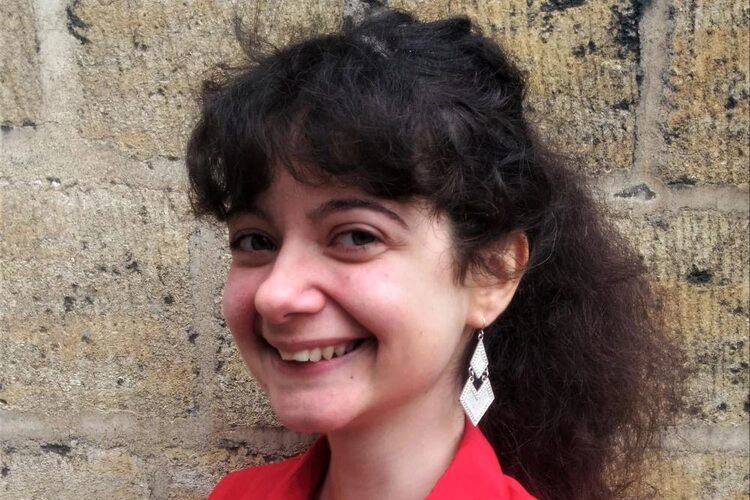
Senior researcher fellow Sara Caputo selects from her library some of her top books. Caputo’s latest book, Tracks on the Ocean, is out now
Sara Caputo is a senior research fellow at Magdalene College, Cambridge. Her new book, Tracks on the Ocean, charts a hidden history of the modern world through the tracks left on maps and the sea. Here are some of her favourite reads:
Jonathan Strange & Mr Norrell by Susanna Clarke (2004)
A thoroughly illuminating account of how the revival of English magic helped to defeat Napoleon – among other things.
It Shouldn’t Happen to a Vet by James Herriot (1972)
The merger of a compassionate vet with a witty writer makes for clever studies of how both human and animal people function, in all weathers.
Small Gods by Terry Pratchett (1992)
This is a standalone Terry Pratchett at his best: an ultimately less-than-cynical satire on worship and the true meaning of godliness, Greek philosophy and tortoises.
Se questo è un uomo by Primo Levi (1947)
This is the most gut-wrenching meditation on humanity I’ve ever read: when does it endure amid the horror, and when is it discarded?
La Divina Commedia by Dante Alighieri (c. 1321 in manuscript)
Fantastic poetry, jumbling together classical myth, history, medieval politics and tormented autobiography, all set in the Christian afterworld. Allegory is lathered so deep that it fostered an early love of footnotes in my schoolchild self.
Temples, Tombs and Hieroglyphs: A Brief History of Ancient Egypt by Barbara Mertz (2010)
Mertz was a prolific novelist, but also a serious scholar, who wrote gripping trade history in the opinionated voice of her murder-mystery heroines.
The Spire by William Golding (1964)
I don’t think anyone really writes quite like William Golding; here he made stone and obsession and height out of sheer words.
War and Peace by Leo Tolstoy (1869)
Tipped off by a smart teacher, my friends and I were enthralled reading this one for much of a summer holiday, back when we were Natasha’s age (and thought her so very childish).




